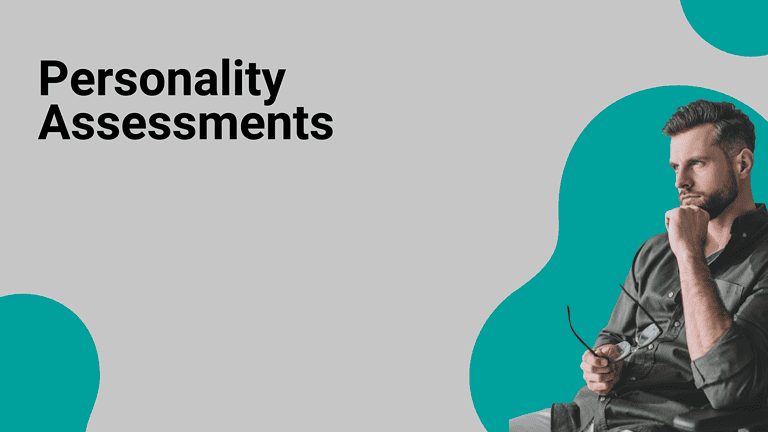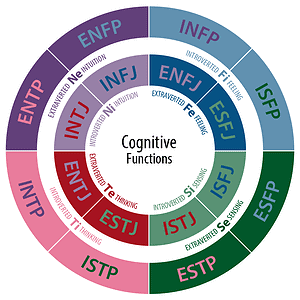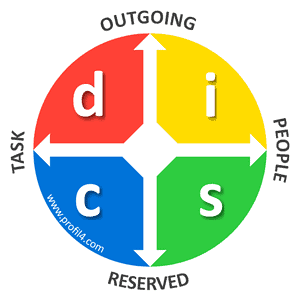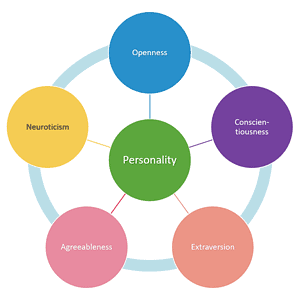Recruiters are not ignoring your experience, they just cannot see it. Discover how to satisfy AI filters and access the...
READ MORE
Reading Time: 9 minutes
Personality assessments are becoming increasingly popular in job applications. Companies use these assessments to identify whether an applicant’s personality traits align with the requirements of a particular role. In this article, I discuss how to take personality assessments when applying for a new role.
Companies use personality assessments for several reasons, including:
Assessing job fit: Personality assessments can help employers determine if a candidate’s personality is a good fit for the job they’re applying for. For example, a job that requires high levels of teamwork may be better suited for someone who scores high in agreeableness.
Predicting job performance: Personality assessments can also provide insight into how a candidate may perform on the job. For example, someone who scores high in conscientiousness may be more likely to be dependable and organized, which can lead to better job performance.
Identifying strengths and weaknesses: Personality assessments can help employers identify a candidate’s strengths and weaknesses. This information can be used to develop training programs or to match candidates to positions where they are most likely to excel.
Improving team dynamics: Personality assessments can be used to build more effective teams. For example, a team made up of individuals with complementary personalities may be more productive and have better working relationships.
Overall, companies use personality assessments as a tool to make more informed hiring decisions and to improve their overall workforce. By gaining insight into a candidate’s personality, employers can make better decisions about job fit, job performance, and team dynamics.


When taking a personality assessment, it is important to read the instructions carefully. This will help you to understand what the assessment is measuring and what the questions are asking. Answer honestly and be consistent in your responses. Don’t overthink your answers. Personality assessments are designed to identify your natural tendencies and preferences. Lastly, time management is crucial. Try not to spend too much time on one question as this can affect the overall accuracy of the assessment.
There are many types of personality assessments, but the most commonly used are: Myers-Briggs Type Indicator (MBTI), DISC Assessment, and Big Five Personality Traits.

The MBTI is a widely used personality test that categorizes people into 16 different personality types based on four dimensions of personality. The four dimensions are:
Each dimension consists of two opposing traits, and individuals are assigned a letter based on which trait is more dominant in their personality. For example, someone who is more introverted than extroverted would be assigned the letter “I” for Introversion.
The combination of these four letters results in a personality type, such as INFP (Introverted, Intuitive, Feeling, Perceiving) or ESTJ (Extraverted, Sensing, Thinking, Judging).
Employers may use the MBTI as a tool to assess an individual’s personality traits and how they may fit into a particular job or team. To prepare for the MBTI as a job seeker, it can be helpful to:
Familiarize yourself with the different personality types and what they mean. This can help you better understand your own personality type and how it may relate to the job you’re applying for.
Practice answering questions related to each of the four dimensions of personality. You may be asked questions that gauge your level of extraversion, sensing, thinking, or judging, so it’s important to be able to articulate your preferences and tendencies.
Be honest in your responses. The MBTI is not a test where you can “cheat” or manipulate your results. Answering questions truthfully will provide the most accurate picture of your personality type.
Overall, the MBTI can be a helpful tool for both employers and job seekers to understand how personality traits may affect job performance and fit. By preparing for the test, job seekers can gain a better understanding of their own personality and how it may relate to the job they’re applying for.

The DiSC assessment is a personality test that categorizes individuals into four main personality types: Dominance, Influence, Steadiness, and Conscientiousness. Each of these personality types has its own set of behavioral characteristics and preferences.
Dominance: These individuals tend to be assertive, direct, and results-oriented. They are often confident and may be seen as competitive.
Influence: These individuals tend to be outgoing, enthusiastic, and sociable. They enjoy building relationships and may be seen as persuasive.
Steadiness: These individuals tend to be patient, reliable, and supportive. They value stability and may be seen as good listeners.
Conscientiousness: These individuals tend to be analytical, detail-oriented, and focused on quality. They value accuracy and may be seen as perfectionists.
Employers may use the DiSC assessment to better understand an individual’s personality and how it may impact their performance in the workplace. To prepare for the DiSC assessment as a job seeker, it can be helpful to:
Familiarize yourself with the four main personality types and what they mean. This can help you better understand your own personality and how it may relate to the job you’re applying for.
Practice answering questions related to each of the personality types. The DiSC assessment typically consists of a series of questions that ask you to rate your level of agreement with various statements. Practicing these types of questions can help you become more comfortable with the assessment format.
Be honest in your responses. Like the MBTI, the DiSC assessment is not a test where you can “cheat” or manipulate your results. Answering questions truthfully will provide the most accurate picture of your personality type.
Overall, the DiSC assessment can be a useful tool for both employers and job seekers to understand how personality traits may affect job performance and fit. By preparing for the assessment, job seekers can gain a better understanding of their own personality and how it may relate to the job they’re applying for.

The Big Five Personality Traits, also known as the Five Factor Model, is a personality assessment that categorizes individuals based on five main personality traits: Openness, Conscientiousness, Extraversion, Agreeableness, and Neuroticism.
Openness: This trait measures an individual’s imagination, creativity, and willingness to try new things.
Conscientiousness: This trait measures an individual’s level of organization, dependability, and work ethic.
Extraversion: This trait measures an individual’s level of outgoingness, sociability, and assertiveness.
Agreeableness: This trait measures an individual’s level of cooperativeness, empathy, and kindness.
Neuroticism: This trait measures an individual’s level of emotional instability, anxiety, and moodiness.
Employers may use the Big Five Personality Traits assessment to understand an individual’s personality and how it may impact their performance in the workplace. To prepare for the assessment as a job seeker, it can be helpful to:
Familiarize yourself with the five main personality traits and what they mean. This can help you better understand your own personality and how it may relate to the job you’re applying for.
Practice answering questions related to each of the personality traits. The Big Five Personality Traits assessment typically consists of a series of questions that ask you to rate your level of agreement with various statements. Practicing these types of questions can help you become more comfortable with the assessment format.
Be honest in your responses. Like the previous assessments, the Big Five Personality Traits assessment is not a test where you can “cheat” or manipulate your results. Answering questions truthfully will provide the most accurate picture of your personality.
Overall, the Big Five Personality Traits assessment can be a useful tool for both employers and job seekers to understand how personality traits may affect job performance and fit. By preparing for the assessment, job seekers can gain a better understanding of their own personality and how it may relate to the job they’re applying for.
As a business leader, should your LinkedIn Profile be written using first or third person language? In the article explore both styles.
Once you have completed the assessment, seek professional guidance to understand and interpret the results. Compare the results with the job requirements to determine whether your personality traits align with the role. Identify your strengths and weaknesses and use the results to improve your job performance.
Personality tests such as the MBTI, DiSC, and Big Five Personality Traits, can provide valuable insights for job seekers and employers alike. As a job seeker, it’s important to understand that these assessments are not tests where you can cheat or manipulate the results. Instead, they are designed to help you better understand your own personality traits and how they may relate to the job you’re applying for.
To prepare for these tests, it’s important to familiarize yourself with the assessment format and practice answering questions related to each of the personality traits. It’s also important to answer questions truthfully to provide the most accurate picture of your personality.
By taking the time to prepare for these tests, you can gain a better understanding of your own personality and how it may relate to the job you’re applying for. This can help you make more informed decisions about your career and improve your chances of success in the job search process.


I have spent the last 10 years supporting companies ranging from start-ups to Fortune 500 companies to find and the best talent around the world.
During this time, I have:



For the past 4 years I have been developing best practices and solutions to give job seekers more confidence in interviews. I run 1:1 virtual interview workshops which show you how to articulate your values and strengths. Just like in sport, perfect practice makes perfect interviewing. Learn how to take on any interview with confidence with My Interview Workshop:
Are you interested in working with me?
Best of luck,
Dave Crumby
Your Career Optimiser | Certified Leadership and Management Consultant
Winner of Most Supportive Career Branding Service 2022
Recruiters are not ignoring your experience, they just cannot see it. Discover how to satisfy AI filters and access the...
READ MORELearn how to write a targeted CV using evidence from recent hiring data. A realistic approach that fits your busy...
READ MOREA data-led guide to why LinkedIn visibility matters in a slower job market, with insights from the latest Huntr report...
READ MOREA data-led guide to improving your CV using insights from Huntr’s Q2 2025 report. Learn the small changes that help...
READ MORE